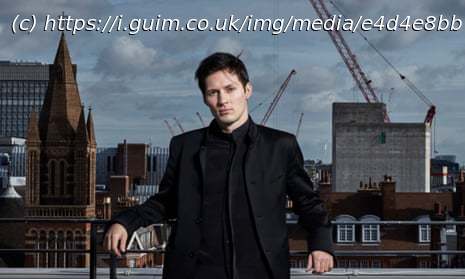Pavel Durov will probably use French legal disputes to position himself as a champion of free speech, say observers
When Pavel Durov came under criticism from Russian regulators over the spread of pornography on the VKontakte social media platform he founded, the tech entrepreneur responded mockingly by changing his Twitter handle from “VK CEO” to “Porn King”.
More than a decade later, Durov’s anti-authoritarian stance and hands-off approach to moderation have landed him in more serious trouble.
On Wednesday, a court in Paris charged the 39-year-old with being complicit in the spread of images of child sexual abuse, as well as a litany of other alleged violations on the Telegram messaging app.
Since its launch in 2013, Durov has presented Telegram as a politically neutral refuge, free from government control and a haven for free speech. For years, he seemed unbothered by the increasing global regulations targeting tech companies and the growing criticism that his platform was being exploited for criminal activities and terrorism.
“It looks like he overestimated himself. Durov believed he had unchecked freedom and was too significant to be arrested. France thought differently,” said the Russian journalist Nikolai Kononov, one of the few reporters who has spoken to the tech billionaire on multiple occasions and authored a biography about him.
For now, Durov has avoided jail, out on a €5m (£4.2m) bail, but has been required to surrender his three passports – French, Saint Kitts and Nevis, and Russian – clipping the wings of a man known for rarely staying in one place for long.
Born in 1984 in the Soviet Union, Durov grew up in a family of intellectuals and was sent to a prestigious high school in St Petersburg. According to Kononov, Durov rebelled against power from a young age.
While learning to code in school, he hacked the system to make all the computers in the classroom display a photograph of the teacher with the caption “Must die”. He was banned from the computer lab for a month.
As a somewhat awkward teenager, Durov was said to possess immense self-confidence, bordering on a messianic belief in his own abilities. When friends gathered at a flat after high school graduation to discuss future careers, he told them, without a hint of joking, that he would become an “internet prophet”.
As his reputation as a computer wizard grew while at university, Durov was approached by two acquaintances who showed him an early version of Mark Zuckerberg’s Facebook. The group quickly decided to create a nearly identical Russian version.
To bring his vision to life, Durov enlisted the help of his older brother, Nikolai, a maths prodigy who won gold three years in a row at the International Mathematical Olympiad in the 1990s. The older Durov would later be recognised as the brains behind both VKontakte and Telegram.
With relatively little competition in the Russian market, VKontakte quickly grew to become the leading social networking platform in Russia as well as across the post-Soviet sphere.
Домой
United States
USA — IT ‘Internet prophet’: arrest of Telegram CEO could strengthen heroic image






